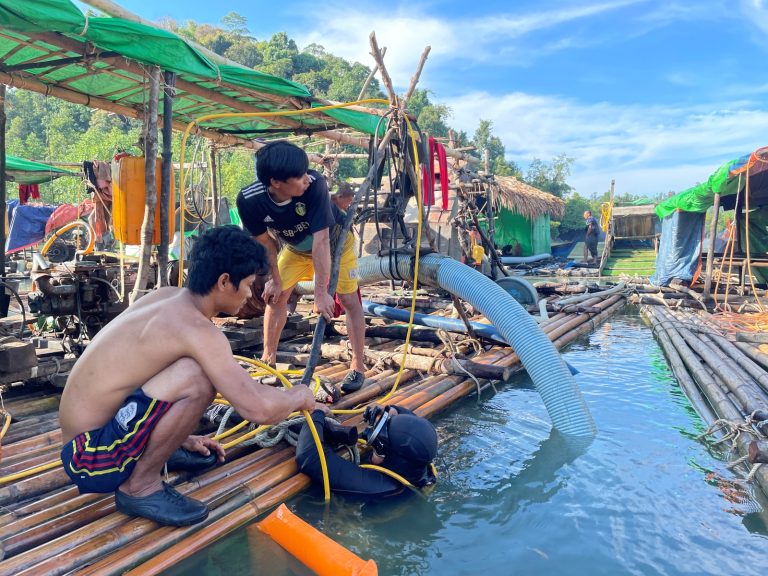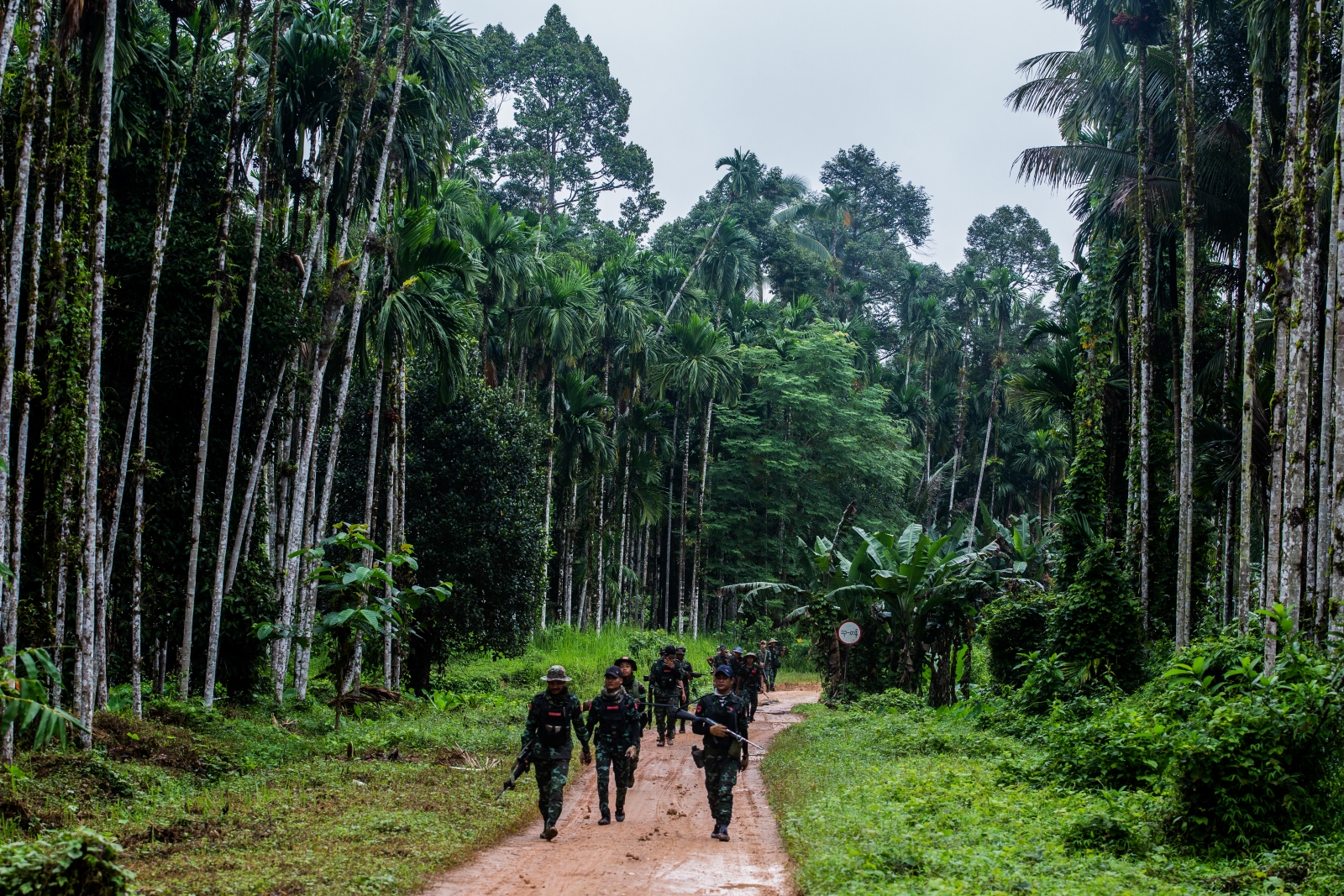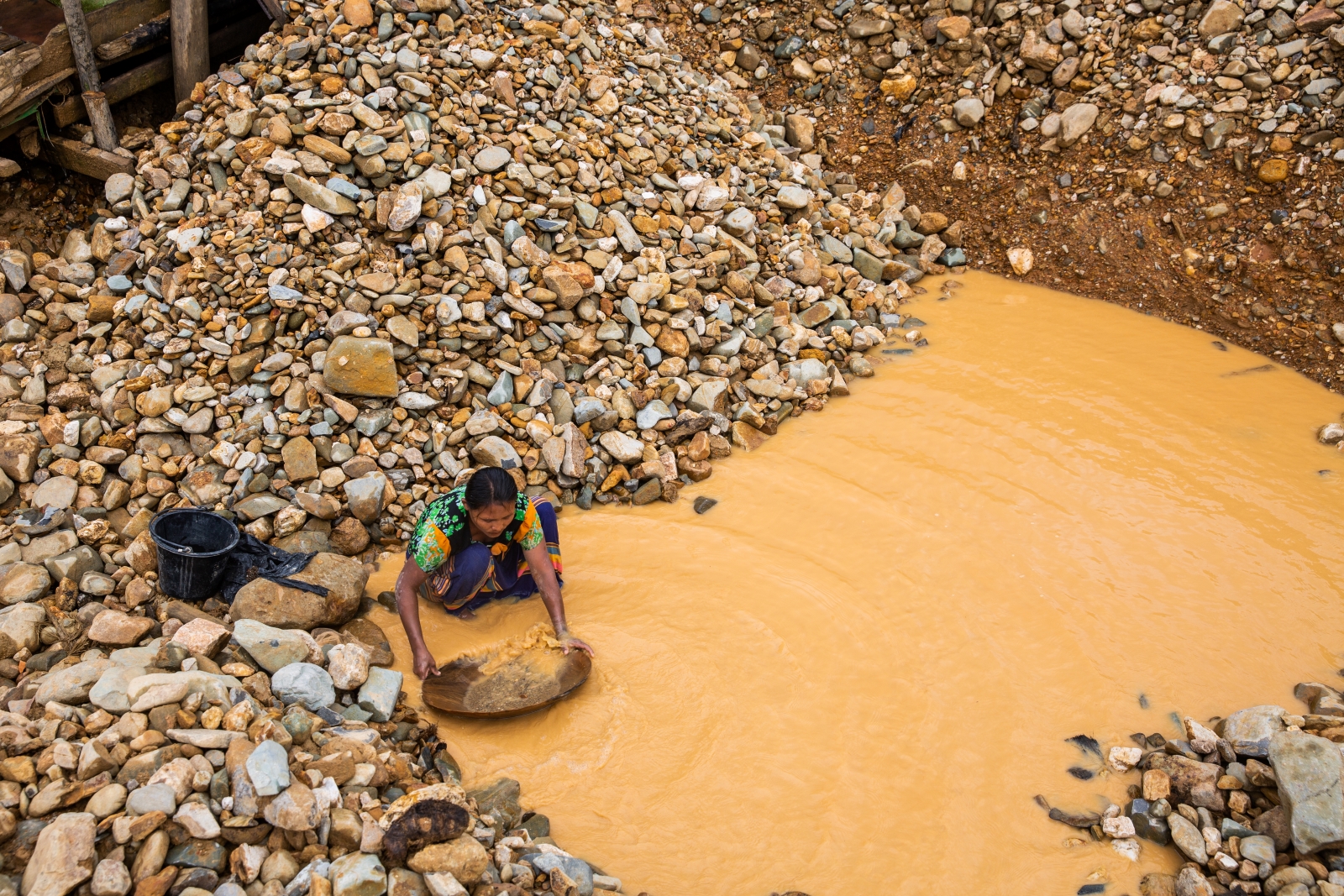By FRONTIER
YANGON — A Hong Kong man who became a shadowy teak kingpin and made millions of dollars from corrupt trade in the coveted timber paid for the overseas education of the children of top officials in Myanmar’s ruling junta, an investigation by an environmental watchdog has alleged in a sensational exposé.
Mr Cheng Pui Chee, who also lived in Thailand under the name Mr Chetta Apipatana, ran a teak trading operation that was a “veritable education in corruption”, says the London-based Environmental Investigation Agency.
It details the activities of Cheng and others in an exhaustive 42-page report, State of Corruption: The top-level conspiracy behind the global trade in Myanmar’s stolen teak, released on February 20.
“Corruption is the key component enabling many of the crimes underpinning the illicit trade of timber within and from the country,” it says.
Support more independent journalism like this. Sign up to be a Frontier member.
EIA said its two-year undercover investigation into Cheng, who died in April 2018, found that he had conspired with and bribed senior military and government officials in Myanmar and established a secret off-the-books system of fraudulent trade in the best quality teak logs.
“This was run in parallel to, and within, the official legal trade administered by the MTE,” it said, referring to the state-run Myanma Timber Enterprise.
Despite past military regimes and the current government presenting the teak trade regulated by the forestry department and implemented by MTE as being wholly legal and sustainable, “this is simply not the case,” the report says.
It says that the markets for teak in the European Union and the United States show that even with regulations to prevent illegally sourced timber from being sold, “traders continue to find ways to get Myanmar teak to multi-millionaire owners of yachts whose manufacturers display an almost ideological obsession with Myanmar teak”.
A spokesperson for MTE was contacted by Frontier for a response to the EIA report, but declined to comment.
EIA launched the investigation in 2016 after hearing about a shadowy teak kingpin, “allegedly an untouchable and unknowable ‘ghost’ behind Myanmar’s State-administered teak trade”. He was said to have captured the highest-grade logs, enabling him to control much of the international trade in “nominally legal” timber shipped from Yangon.
Painstaking research, and information provided by a timber trader in Taiwan to an undercover EIA team in 2017, led to the identification of Cheng, who began his career in Hong Kong importing teak from Myanmar and Indonesia through a family company, Cheung Hing.
EIA says a leaked cable from the US embassy in Yangon in June 2009 showed that a top crony under military rule, U Tay Za, of the Htoo Group, and his Chinese-speaking advisor and fixer, Mr Lu Lu (aka Kwan Lu Chan), both had minority stakes in Cheung Hing Corp Ltd and Cheung Hing Timber Corp.
It says Cheung Hing has two affiliated companies in Myanmar, Thai Sawat Industry Ltd and Pacific Timber Enterprises Co Ltd.
The report says Cheung Hing was also linked to the International Group of Entrepreneurs (IGE) company, established by the family of former junta industry minister, U Aung Thaung, and a big player in the timber sector during the Than Shwe era.
It seems that sometime in the early 1960s, Cheng moved to Bangkok, where he acquired Thai identity and adopted the name Chetta Apipatana, and was one of seven founders in 1963 of the Thai Sawat Import Export Ltd company.
Thai Sawat was one of 35 Thai logging firms awarded 47 logging concessions in Myanmar after a visit in December 1988 by Thai armed forces commander-in-chief General Chavalit Yongchaiyuth, who later became prime minister.
In December 1993, Thai Sawat was one of only five Thai firms that maintained logging rights in Myanmar after the junta expelled all other Thai logging companies earlier that year.
EIA says the man it interviewed in Taiwan, Mr Zheng Kun Fu, a veteran sawmiller known by friends as A-Fu, had bought all his logs from Cheung Hing and described Cheng as the biggest teak trader in the business.
“A-Fu explained how Cheng Pui Chee’s success essentially hinged on a guarantee of impunity for defrauding the state through the systematic under-declaration of the grades of logs harvested by his operations or those of other subcontractors he purchased from,” the report says.
“A-Fu explained how Cheng used to buy from MTE auctions but struck deals with senior officials to bypass them while still accessing the best teak.
“This is theft. While Cheng paid MTE for the wood, he should have paid substantially more at auction than the low prices offered under timber-sharing arrangements for lower grade wood.
“The net result was that Cheng illegitimately accumulated huge volumes of the world’s best teak at knock-down prices, giving him market dominance.”
EIA said A-Fu had repeatedly reiterated that cash payments of tens of millions of dollar advanced to the government by Cheng was for the personal enrichment of top regime officials, paid into their personal bank accounts in Hong Kong and Singapore.
“A-Fu said Cheng Pui Chee was a ‘legend’ because of his strategy to also pay for the private education outside of Myanmar of the children of top officials, effectively buying long-term favour with the regime over two generations,” it said.
“For Myanmar’s ruling generals and officials – themselves operating as a cartel – and for other crony logging subcontractors with whom the regime conspired, Cheng Pui Chee proved to be an ideal co-conspirator, fulfilling their desire to corruptly enrich themselves from kickbacks while generating just enough revenue to prop up the regime.
“Through these completely illegal arrangements, Cheng became perhaps the world’s largest teak trader working within the official ‘legal’ system of trade administered by MTE.”
The EIA says that of all the irregularities encountered in Myanmar’s formal teak sector, its findings illustrate how teak sold through formal channels is as corrupt and illegal as any blatantly smuggled across the border into China.
“Myanmar cannot reform this multi-layered, complex but highly organised international timber trade by itself and it is crucial that the past years of gross corruption and deceit are acknowledged and addressed,” it says.
“For a natural resource so beloved and culturally important to Myanmar and its people as teak, allowing its near-extinction would be the biggest crime of all.”







